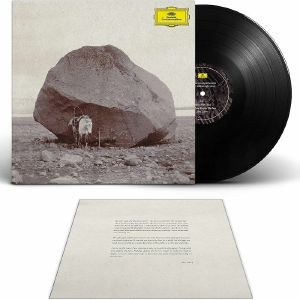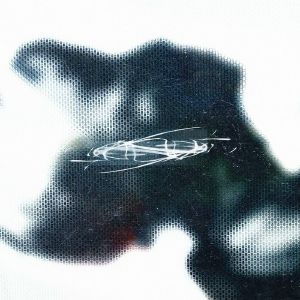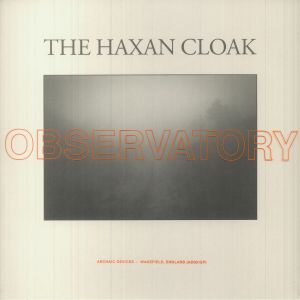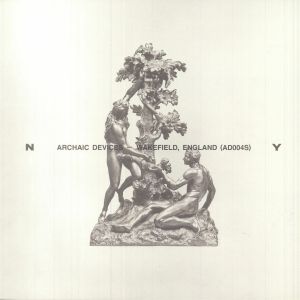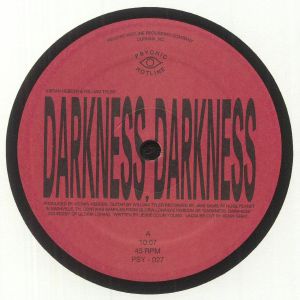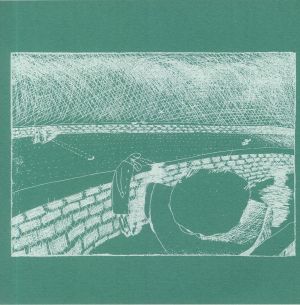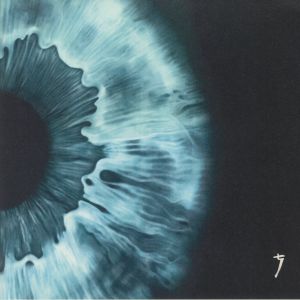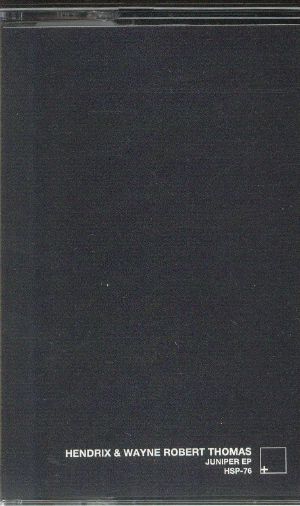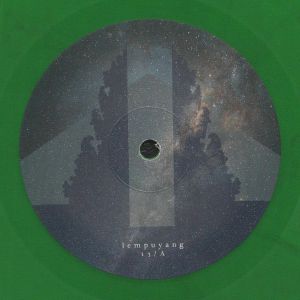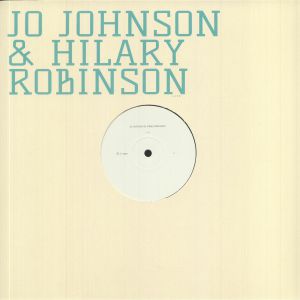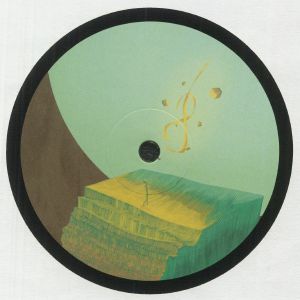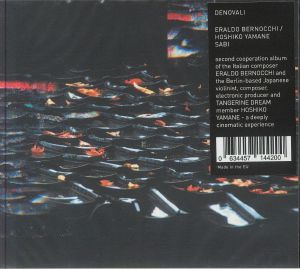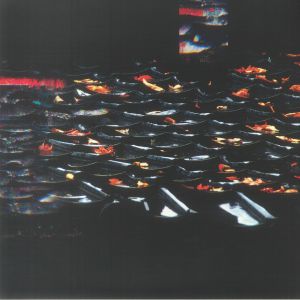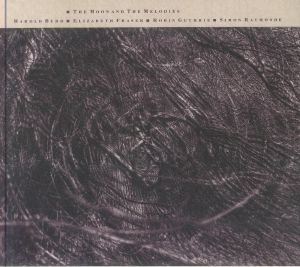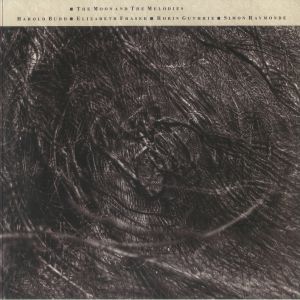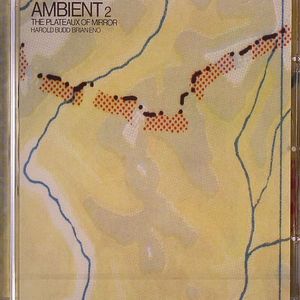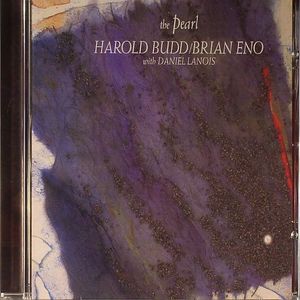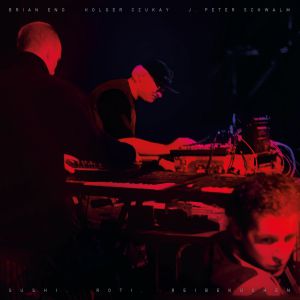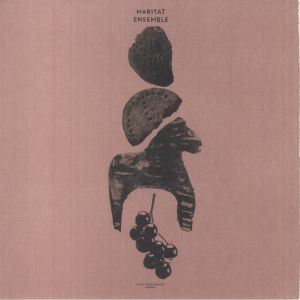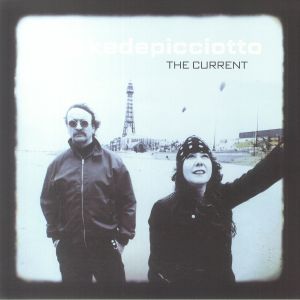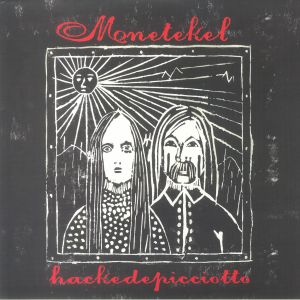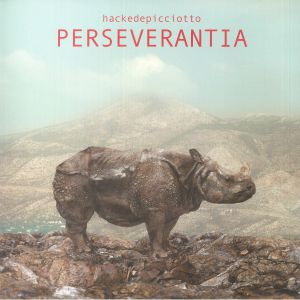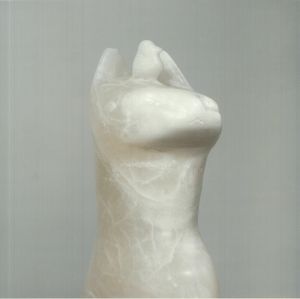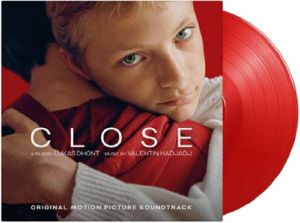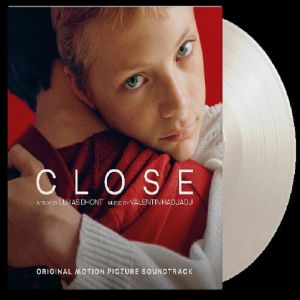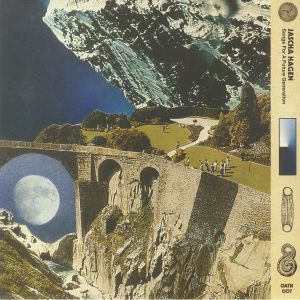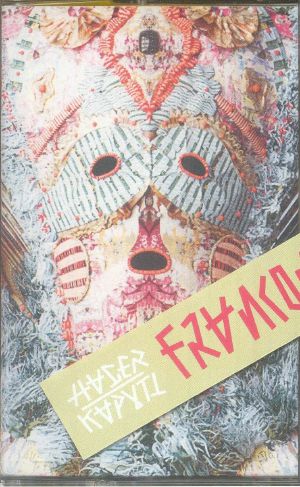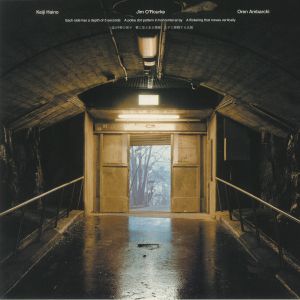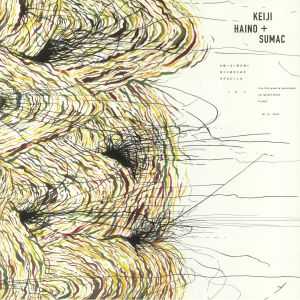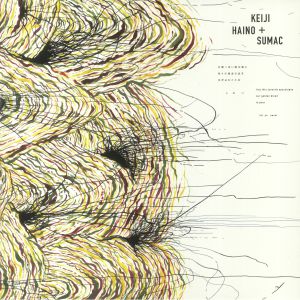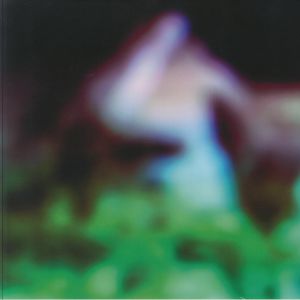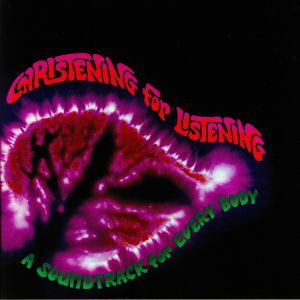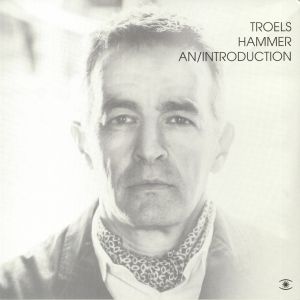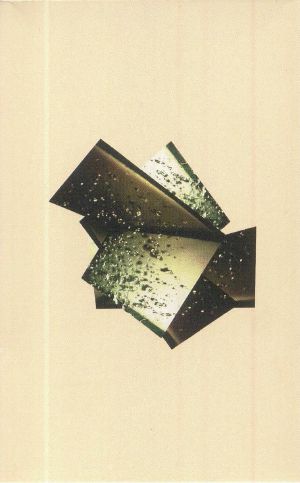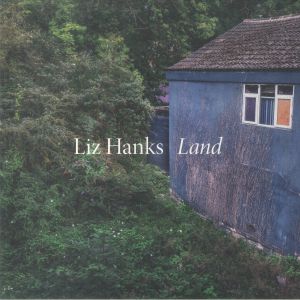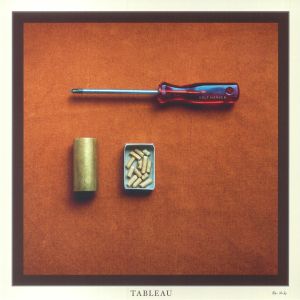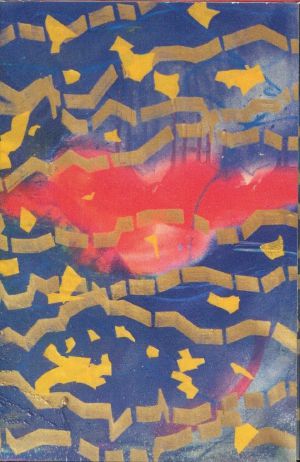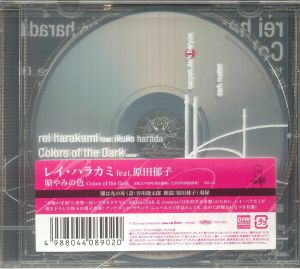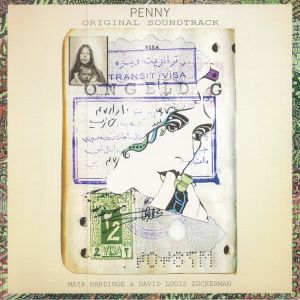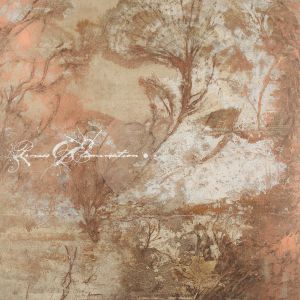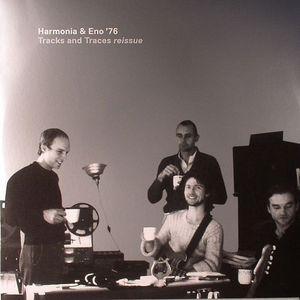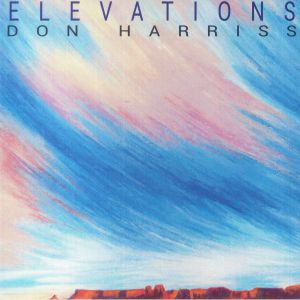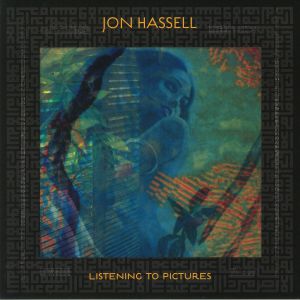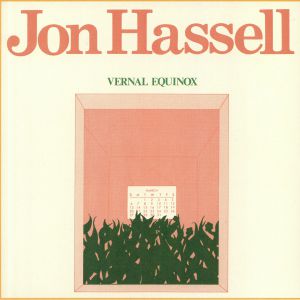Filter
在庫状況
Release Date
Featured
リリースタイトル
値段
タグ
Back catalogue: Ambient/Drone
Juno's full catalogue of Ambient/Drone
シングル
Longer Shadows Softer Tones (heavyweight vinyl 12" + insert)
Cat: 486561 9. Rel: 04 Oct 24
in stock $28.18
Review: INDEX:Records founder and self-styled 'DJ and sound engineer' Conna Haraway finally makes his vinyl bow following a couple of low-key cassette and digital download releases. According to the Sydney-based imprint handling the release, Theory Therapy, the wonderfully titled Spatial Fix was partially inspired by the Glasgow-based artist's 2024 tour of Japan and South Korea. You can hear that in the subtly far eastern melodies and ambient techno style textures of ten-minute opener 'Freon', whose grooves would undoubtedly have impressed the late Andrew Weatherall, and the hushed, semi-abstract, deeply layered wonder of 'Switchback'. Elsewhere, the stretched-out, immersive and meditative '1702' joins the dots between low-tempo ambient techno and dub techno, while 'Patent' is deep, otherworldly and suitably sub-heavy mutant dancehall.
… Read more in stock $23.08
Review: As Bobby Krlic's project The Haxan Cloak makes a return after some ten years of silence with the 'N/Y' single, it's a fine time to track back and catch up on some of his small but perfectly formed catalogue. Observatory originally came out in limited quantities in 2010, and now it sees a repress to stave off the sharks and allow more people to experience this engrossing short form release. The title track is a strong melodic mantra riding a densely packed organ-like figure into oblivion, allowing the resonant frequencies and harmonics to become the dynamic movement in the track with an expert patience. 'Honfour (Temple)' is a subtler, more shapeshifting piece with gorgeous blooms of ambience and submerged pulses that lead you deeper into Krlic's evocative sound world.
… Read more in stock $16.64
Review: In a move many might have believed not possible, Bobby Krlic makes a welcome return as The Haxan Cloak with this monumental single. It's no less than ten years since we last heard from the industrial-tinged electronica maverick on his Excavation album, but now he's back with a bruising new piece called 'N/Y' which pops up on both sides of this clear 12" platter. It's a high pressure release full of jackhammer percussion and noise blasts, plus some sirens thrown in for good measure. Holding true to the industrial tradition, it's entirely engineered as a blast of intensity, and Krlic has considerable talent to render such an approach in a powerful, provocative way.
… Read more in stock $12.72
Darkness Darkness (12")
Cat: PSY 027LP. Rel: 29 Jun 23
Review: A collaborative new single by sampletronic master Kieran Hebden (aka. Four Tet) and guitarist and composer William Tyler, two acclaimed musicians and both longstanding friends. Part of a recent spewing-forth of Hebden-adjacent material to hit the shelves after the artist's oft-reported-upon "agent of chaos" phase, these two tracks, pressed to a furtive 12", provide a neat counterpoint to that assessment. Rather than a pair of riddim bangers, the record flaunts Hebden's signature electronic textures and Tyler's guitar into a hypnotic, nominally dark soundwhirl, reminiscent of the earliest days of Text, but with a unique edge - a sonic corner never quite scoured before by either artist.
… Read more in stock $17.44
Height/Dismay (hand-stamped 7" limited to 300 copies)
Cat: ES 024. Rel: 24 Feb 22
Played by: Juno Recommends Ambient/Drone
in stock $11.67
in stock $39.17
Juniper EP (limited cassette single)
Cat: PITPHSP 76. Rel: 24 Jun 22
Review: Another collaborative effort from the consistently fascinating US ambient kings Past Inside The President, this time with Hendrix - not that one - and Wayne Robert Thomas, whose atmospheric guitar-led work has featured several times on the label before. If the average ambient album has its head in the clouds, this is more grounding, more gamboling in the fields perhaps than floating in the ether, with gentle flute and guitar giving the walls of synth sounds some perspective. That said, the closing track of the four, 'Retract R (Type K)', sizzles away like something by Growing or even Spaceman 3 left to fry in the sun. Magnificent stuff..
… Read more in stock $15.02
Theories Of Time (limited heavyweight green & black smoke vinyl 12" + digital bonus track download code)
Cat: LPY 13. Rel: 27 Nov 23
Review: Hidden Sequence have appeared on legendary dub techno label Mosaic in fine form of late and now they land on the Lempuyang imprint with four more serene fusions. Their Theories of Time EP opens up with the swaggering dub rhythms and bottomless depths of 'Distortion', a cut as heady as they come. 'Travelling,' as the title suggests, has a deeper rolling groove and more movement to it as it snakes through underwater dub caverns. Flip it over for more widescreen and serene explorations of the ocean floor with 'Shift' and mysterious leads of 'Delay' which is a fourth and final frictionless dub dream.
… Read more in stock $8.86
Piano Versions (limited blue vinyl 12" + MP3 download code)
Cat: RUG 1217TX. Rel: 02 Jul 21
Review: Seven years after he gave us the spectacularly beautiful Asleep Versions, Jon Hopkins presents four minimal piano stunners to help us return to those half-awake moments of absolute bliss. The bit before the dark in the back of your eyes turns red and you realise it's going to be another 12 hours or so before you're climbing back into the sack and returning to a place where, let's face it, most of us are pretty happy.
In terms of the music itself, this is Hopkins and therefore you know the score in terms of vision. Opening on the tranquility of 'Heron', which sounds as though it was recorded by a lakeside in southern England complete with wildlife on tape, from here things only get more intoxicating, until the delicate pitter pattered notes of 'Wintergreen' close us out on a subtle but moving air.
… Read moreIn terms of the music itself, this is Hopkins and therefore you know the score in terms of vision. Opening on the tranquility of 'Heron', which sounds as though it was recorded by a lakeside in southern England complete with wildlife on tape, from here things only get more intoxicating, until the delicate pitter pattered notes of 'Wintergreen' close us out on a subtle but moving air.
Played by: Juno Recommends Ambient/Drone
in stock $13.95
Session One (12" + MP3 download code in die-cut sleeve)
Cat: 9128 1. Rel: 06 May 22
Review: The inaugural 9128.live label release came from the UK's Jo Johnson and Hilary Robinson, featuring subtle, harmonic drones and manipulated piano, originally aired as part of the duo's set for the CALMA (Madrid) takeover on 9128.live, April 2020. Released digitally in 2020, the set is now available on 12" vinyl, split into two long-form compositions.
… Read morePlayed by: Jane Fitz, Juno Recommends Ambient/Drone
in stock $25.22
Anthroposcene (12")
Cat: LOST 001. Rel: 08 Dec 22
Review: Lost In Translation's debut release, Anthroposcene, is a vital coming together of various artists each with their own take on ambient. It is all airy soundscapes and lo-fi pads to start with from Saphileaum's 'Prologue' while Alfred Czital & Moon Patrol bring in some silky broken beats and warped electronics on 'Act I.' Human Space Machines's 'Act II' is deep rolling techno bliss and on the flip, we get everything from cavernous underwater soundscapes to Orca Silent's edgy dub 'Act IV' and Martinou's soothing closer 'Epilogue.'
… Read morePlayed by: Agnostic Rhythm, Tom Drew
in stock $15.83
アルバム
Review: After five years apart, Italian composer Eraldo Bernochi and Japanese violinist, electronica producer and current Tangerine Dream member Hoshiko Yamana return with a sequel to their much-loved 2020 album Mujo. Described by the pair's label, Denovali, as "a deeply cinematic experience", Sabi cannily combines the slow-burn, trance-inducing synthesizer sequences of Tangerine Dream, the intergalactic electronic expressiveness of ambient techno, the thematic movements of modern classical, Yamana's emotive violin motifs and the spaced-out ambient iciness often associated with Geir Jensson's Biosphere project. It's a genuinely brilliant album all told, with the pair smartly sashaying between hazy melancholia, string-laden creepiness and picturesque aural colour.
… Read more in stock $18.24
Sabi (180 gram vinyl LP + MP3 download code)
Cat: DEN 383LP. Rel: 22 Dec 23
Review: Denovali presents the second cooperation album by Italian composer, arranger, producer and guitarist Eraldo Bernocchi, in collaboration with Berlin-based Japanese violinist, composer, electronic producer and Tangerine Dream member Hoshiko Yamane. Bernocchi and Yamane have come together here for the second time after finding inspiration in the Japanese concept of "sabi" - an aesthetic that celebrates the beauty of impermanence and decay. It is often associated with the simplicity, austerity, and solitude found in nature, and is said to evoke a sense of melancholy, nostalgia, and reverence for the passage of time. The record, to match, is a unique blend of electronic and acoustic music, with Bernocchi's pulsating textures and Yamane's haunting treated violin melodies weaving together to create a captivating and emotional sonic landscape.
… Read more in stock $27.37
Cat: 4AD 0642CD. Rel: 22 Aug 24
Review: The Moon and the Melodies, a remarkable collaboration between Cocteau Twins and ambient pioneer Harold Budd, remains a standout achievement in both artists' repertoires. First released in 1986, this enchanting album is now receiving a well-deserved vinyl reissue, meticulously remastered by Robin Guthrie from the original tapes. This album is a stunning fusion of the Cocteau Twins' signature dreamlike atmospheres with Budd's elegant, improvisational piano, resulting in a listening experience that is both expansive and deeply personal. The blending of Elizabeth Fraser's ethereal vocals, seamlessly intertwined with Guthrie's luminous guitar work and Raymonde's resonant bass, creates a sound that is both distinct and evocative. The album effortlessly balances vocal tracks with instrumentals, each adding to its rich and diverse sonic palette. This reissue offers a chance to rediscover a defining moment in the evolution of dream pop and ambient music. The Moon and the Melodies continues to stun audiences. This CD edition is the perfect vehicle to an ethereal beauty of the highest order.
… Read more in stock $11.54
Cat: 4AD 0642LP. Rel: 22 Aug 24
Review: The Moon and the Melodies, a collaboration between Cocteau Twins and ambient pioneer Harold Budd, stands as a unique gem in both artists' discographies. Originally released in 1986, this ethereal album is now being reissued on vinyl, remastered from the original tapes by Robin Guthrie. Unlike anything else the Cocteau Twins ever produced, this record blends their dreamlike soundscapes with Budd's serene, improvisational piano work. The result is an atmospheric journey, at once intimate and expansive. Tracks like 'Sea, Swallow Me' shine with Elizabeth Fraser's otherworldly vocals, intertwined with Guthrie's shimmering guitar and Raymonde's grounding bass, creating a sound that feels both familiar and entirely unique. Instrumentals like 'Memory Gongs' and 'The Ghost Has No Home' highlight Budd's delicate piano, enhanced by the band's signature ambient textures. The album is a study in contrasts, vocal tracks sit alongside instrumentals, each contributing to a cohesive yet diverse listening experience. For fans, this reissue is a chance to revisit a pivotal moment in the evolution of dream pop and ambient music. The album's enduring appeal is evident in its continued influence in social media. The Moon and the Melodies remains a shining light that can happen when artists from different realms come together to create something truly timeless.
… Read more in stock $22.52
Cat: ENOCDX 7. Rel: 31 Jul 09
in stock $5.90
in stock $5.90
Sushi Roti Reibekuchen (gatefold 2xLP)
Cat: LPGRON 290. Rel: 23 May 24
Review: Now here's a rarity for you. Not even many of the most committed megafans know that Brian Eno, Holger Czukay and J.Peter Schwalm, accompanied by Raoul Walton and Jern Atai, performed a secret live music show, outside the esteemed Kunst-und Ausstellungshalle der Bundesrepublik Deutschland, the Art and Exhibition Hall of the Federal Republic of Germany, situated in the city of Bonn, in August 1998. Forming a part of the opening party of Eno's Future Light-Lounge Proposal multimedia installation, this furtively-recorded album hears an exclusive slice of incidental "high-altitude food music", of course made during Brian Eno's airborne ambient era. Now reissued via Gronland, this five-piece cut of sophisti-ambi-krauttronica makes for a welcome surprise.
… Read more in stock $28.71
in stock $38.36
Review: Habitat Ensemble is a new musical collective that is led by musician Marius Houschyar and this is their self titled debut album on the delightful Music From Memory. The group has roots in the south of the Czech Republic where, we're told, outsiders and creatives have been meeting at a summer school since the 1990s. It was in the summer of 2022 that this group came together, inspired by the idea of exchanging the down cultural and musical ideas through music. They first started out with a series of multidisciplinary workshops which then blossomed into this full length - a fusion of jazz, ambient, world music and experimentation that is organic and enriching.
… Read more in stock $27.10
Played by: Juno Recommends Experimental
in stock $15.02
Played by: Juno Recommends Experimental
in stock $16.91
Played by: Juno Recommends Experimental
in stock $15.02
in stock $20.93
Close (Soundtrack) (limited 180 gram audiophile red vinyl LP)
Cat: MOVATM 333R. Rel: 02 Apr 25
in stock $28.18
Close (Soundtrack) (limited 180 gram audiophile white vinyl LP)
Cat: MOVATM 333. Rel: 03 Apr 25
in stock $28.18
Played by: Mimi, Evan Michael
in stock $15.30
Franconian Primitiv (cassette limited to 70 copies (soundfiles not availabe))
Cat: OM 33CS. Rel: 12 Jul 23
Fieber
Hexenhaus
Im Suden
Im Schwindel Auf Der Stadtmauer Spaziert
Knoblauchsland
Lorenz
Unterhaltung Hinterm Bauzaun
Glockengang
Plarrers Traum
in stock $14.49
Each Side Has A Depth Of 5 Seconds A Polka Dot Pattern In Horizontal Array A Flickering That Moves Vertically (gatefold LP)
Cat: BLACKTRUFFLE 074. Rel: 21 Oct 21
in stock $24.67
Into This Juvenile Apocalypse Our Golden Blood To Pour Let Us Never (limited clear vinyl 2xLP + MP3 download code in slip case (indie exclusive))
Cat: THRILL 568LPY. Rel: 06 Oct 22
When Logic Rises Morality Falls Logic And Morality In Japanese Are But One Character Different (12:11)
That Fuzz Pedal You Planted In Your Throat, Its Screw Has Started To Come Loose Your Next Effects Pedal Is Up To You Do You Have It Ready? (7:13)
in stock $39.17
Into This Juvenile Apocalypse Our Golden Blood To Pour Let Us Never (2xLP + MP3 download code)
Cat: THRILL 568LP. Rel: 07 Oct 22
When Logic Rises Morality Falls Logic And Morality In Japanese Are But One Character Different (9:03)
That Fuzz Pedal You Planted In Your Throat, Its Screw Has Started To Come Loose Your Next Effects Pedal Is Up To You Do You Have It Ready? (5:22)
in stock $26.82
in stock $20.39
Review: The fourth ever solo studio album from the acclaimed electronic artist and composer Laurel Halo, Atlas is intended to guide the listener through their own subconscious mind, coming as an intense sequence of soaring ambiences and beatless jazz montages. Finding its footing in instrumental improvisation by Halo herself, plus featuring artists Coby Sey, James Underwood and Lucy Railton - and then blowing any assumptive connotation with jazz out of the park with its subtly effected vocal processing and electronic tinkerings and washes thereafter - fans can be sure that this is not going to be your stock experimental affair.
… Read morePlayed by: Juno Recommends Ambient/Drone
in stock $24.15
Christening For Listening: A Soundtrack For Every Body (limited LP + inserts)
Cat: AAR 888. Rel: 08 Jan 20
Review: Long regarded as one of the most prolific producers of new age music, Steven Halpern has released an astonishing number of albums since making his debut 45 years ago. Even so, few of his full-lengths are quite as sought after as the LP that started it all, 1975's "Christening For Listening: A Soundtrack For Every Body". Here it gets the reissue treatment, admittedly with a relatively limited pressing. The album is rich and evocative, joining the dots between new age, ambient and experimental jazz, with the seven-part A-side "Spectrum Suite" offering a slowly shifting journey that should really be listened to in its entirety. Closer "Subtle Body Suite", a moody, up-tempo dancefloor jazz number full of squally trumpet solos, is also incredible.
… Read morePlayed by: Calamity Jade (Willwork4funk), DJ ROCCA
in stock $37.55
Review: Big emotions often come in small, intimate packages. Initially at least. Judith Hamann opens her stunning contemporary classical-ambient meditation with the kind of hush that means music and sound creep over you without making themselves instantly known. Before we know it, the transformation - or, perhaps more accurately, transportation - is complete. Using field recording techniques, Hamman augments the electronic harmonies and refrains with au naturel noises, from the hubbub of distant conversation to an asthmatic's whistle, all of which places the plugged-in and synthesised in a very human place. The result is something that feels timeless, as crystalline and clear as it is water-weathered and sepia-hued. The overall affect is mysterious and adventurous, like walking down a serene empty beach only to realise you can't remember which direction you came from.
… Read more in stock $23.35
Played by: Manu Archeo
in stock $24.15
Klondike (limited cassette + SD card)
Cat: RELTAPE 10. Rel: 08 Mar 21
in stock $17.98
Review: Back in the depths of the global Coronavirus pandemic, Nick Hoppner and Alex Kassian decided to join forces to record an album, one that would set aside their club credentials and instead focus on their collective love of krautrock, ambient and 'guitar-driven music'. The result is The Big Melt, the duo's first missive as H.A.N.K. Beginning with the immersive, enveloping sound world that is 'Cruise' - a slow-build, effects-laden dreamscape that offers nods to classic Tangerine Dream, shoegaze and 1990s ambient electronica - the album bobs along attractively, with exotic rhythms and intoxicated electronics ('A Useful Fever') sitting side by side with shuffling Balearic instrumentals ('Azul's Garden'), kosmiche epics ('Jag Aar Jag'), sitar-laden wonders ('While My Tar Gently Weeps'), and analogue-rich nods to Neu!, Can and Dunkelziffer ('No Harm').
… Read more in stock $26.57
Meer (Boundary)
Keld (A Spring)
Brook (Small Stream)
Ride (Path Made By Humans Or Animals Through Woodland)
Hide (Measurement Of Land Needed To Sustain A Family)
in stock $26.57
Tableau (LP + MP3 download code limited to 300 copies)
Cat: KALK 125LP. Rel: 28 Jun 22
in stock $26.30
in stock $13.69
Rei HARAKAMI feat IKUKO HARADA
Cat: RINC 103. Rel: 28 Jul 23
in stock $24.96
Penny (Soundtrack) (limited numbered LP + insert)
Cat: DAK 018CINE3. Rel: 27 Mar 24
in stock $45.34
How Do I Know What I Want When Everybody Is Telling Me I Should Want What I Dont Have (feat Memory Play) (6:18)
Review: El Hardwick's sophomore album, Process of Elimination, explores illness as a pathway to personal and anti-capitalist transformation. Rooted in their experience of chronic illness after years of pushing their body beyond its limits, the album reflects Hardwick's journey toward healing through mysticism and natural remedies. Turning away from the need for a formal diagnosis, Hardwick embraced a process of self-rewilding, rejecting capitalism and gender norms to reconnect with their body and the earth. Musically, Process of Elimination combines lush, dubby soundscapes with cosmic experimentation. Tracks like Dual feature sparse synthesiser tones alongside woodwinds and double bass, creating a spacious environment for Hardwick's spoken-word reflections. Collaborations with musicians such as Alex McKenzie and Laura Misch bring a range of organic textures to the album, enhancing its sense of natural exploration. The album shifts between ambient meditations and more rhythmic moments, with highlights like 'Quantology' and the IDM-tinged 'How Do I Know...?' revealing a balance between introspection and forward momentum. Hardwick's process is further mirrored in their personal journey of coming out as trans non-binary, which they describe as another form of elimination, moving beyond binary definitions. Ultimately, Process of Elimination is a powerful reflection on healing, acceptance and the reclaiming of energy, inspired by thinkers like Silvia Federici and Donna Haraway, and enriched by contributions from London-based artists and friends.
… Read morePlayed by: Alexis Le-Tan
in stock $23.08
in stock $27.10
in stock $18.24
Elevations (reissue) (hand-numbered LP + insert limited to 100 copies)
Cat: PHR 049LP. Rel: 01 Mar 23
Review: Don Harriss had a superb run of seven albums from 1987 to 2000 and then stopped work. Thankfully his legacy lives on with this reissue of his debut long player from 1987. It is a majestic work of new age bliss that now makes its first-ever appearance on vinyl. It is something of a low key ambient masterpiece with transportative sounds that bring real depth of emotion. If you listen closely you might be able to join the dots between this and the soundtracks of some cult 80s and 90s video games but if not simply sit back and sink into the lush layers of soothing sound.
… Read more in stock $39.45
Listening To Pictures: Pentimento Volume One (LP + MP3 download code)
Cat: NDEYA 1LP. Rel: 08 Jun 18
Review: Since the release of Jon Hassell's last album in 2009, there's been an upsurge in interest in the "Fourth World" style he pioneered alongside Brian Eno way back in 1980. It seems rather fitting, then, that the 81 year-old trumpeter turned experimentalist has returned to show the pretenders how it should be done. Listening To Pictures (Pentimento Volume 1) is every bit as alluring as you'd expect, with Hassell delivering thrilling new soundscapes that pull the Fourth World template (think combinations of American minimalism, ethnic styles from around the world, advanced electronics and manipulated trumpet sounds) in a variety of directions. It's in turns trippy, hypnotic, beautiful, poignant and otherworldly, with each ambient composition being accompanied by another where Hassell draws influence from contemporary IDM or drowsy experimental jazz.
… Read more in stock $23.88
Review: Reissues don't come more significant than this. Jon Hassell's work new and old has been enjoying plentiful appraisal in recent years, with his outlook on Fourth World music finding fresh relevance with a modern crop of artists. While much of his catalogue has been given a fresh lease of life, they've been saving one of his most seminal works. Vernal Equinox was originally released in 1978, one of Hassell's first albums alongside Earthquake Island. It's essentially the blueprint for outernational music - a heady brew of global signifiers stewing together in one unclassifiable pot marked out only by Hassell's inimitable trumpet style. From ambient heads to sonic explorers, you won't want to miss the chance to own this most precious of albums.
… Read more in stock $25.49

 USD
USD





